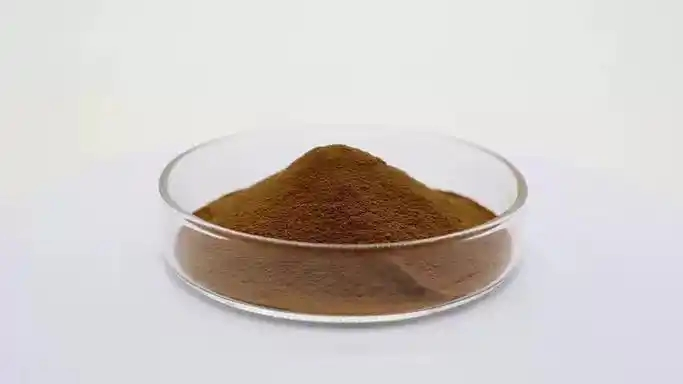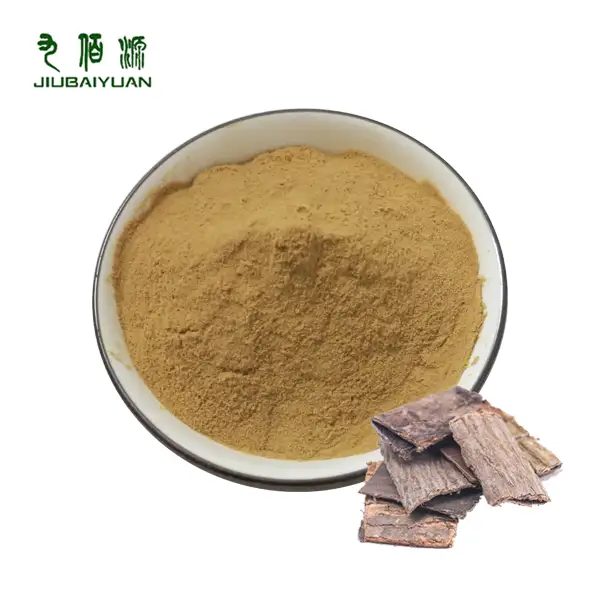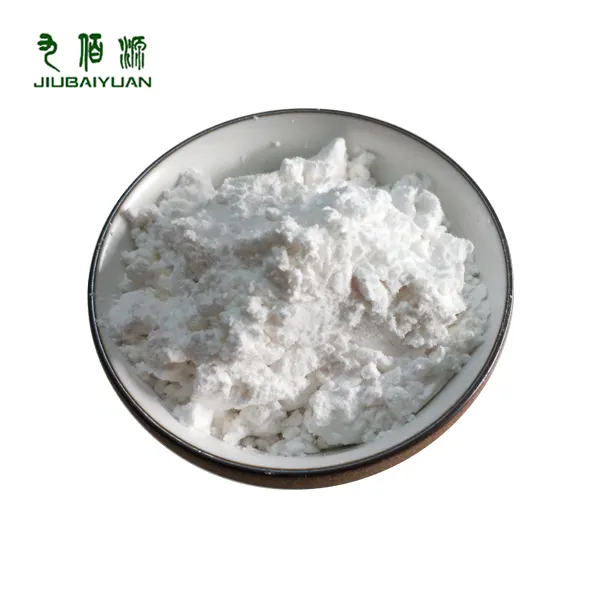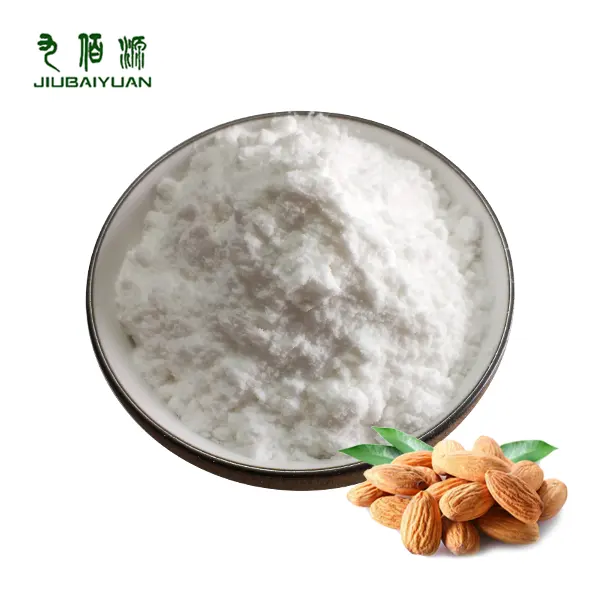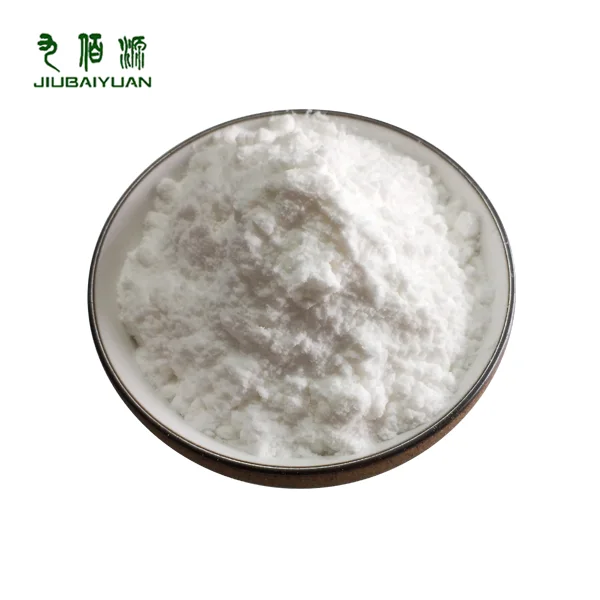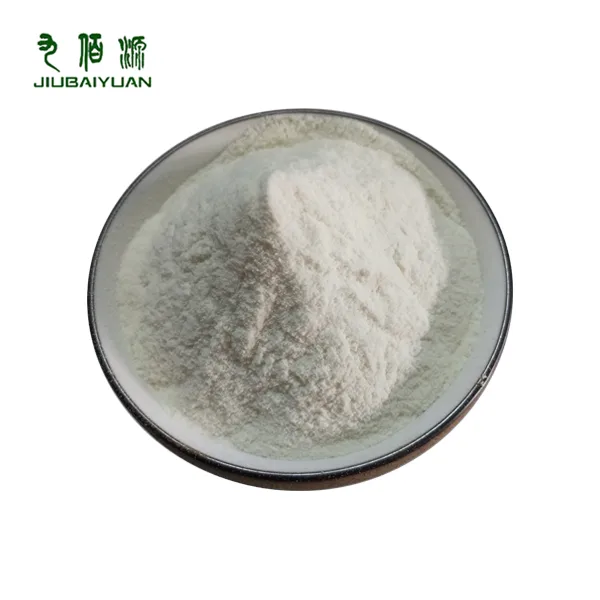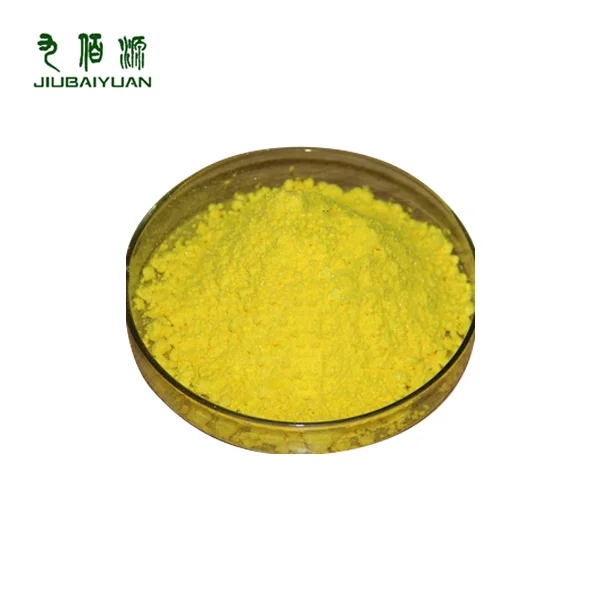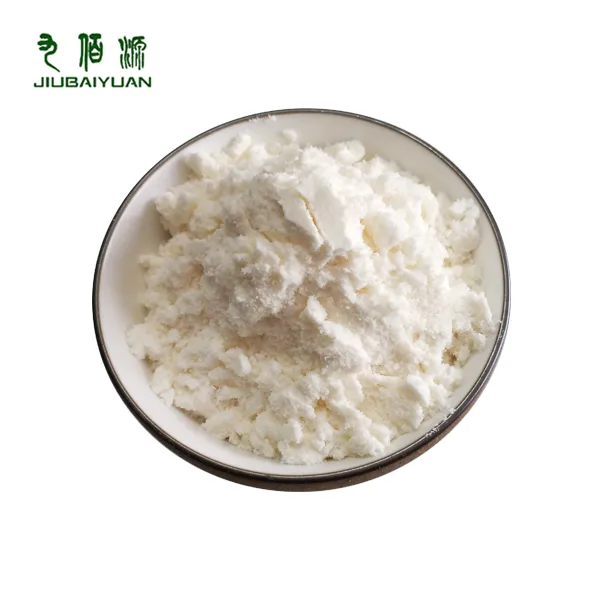What is Barbaloin and Its Role in Aloe Vera?
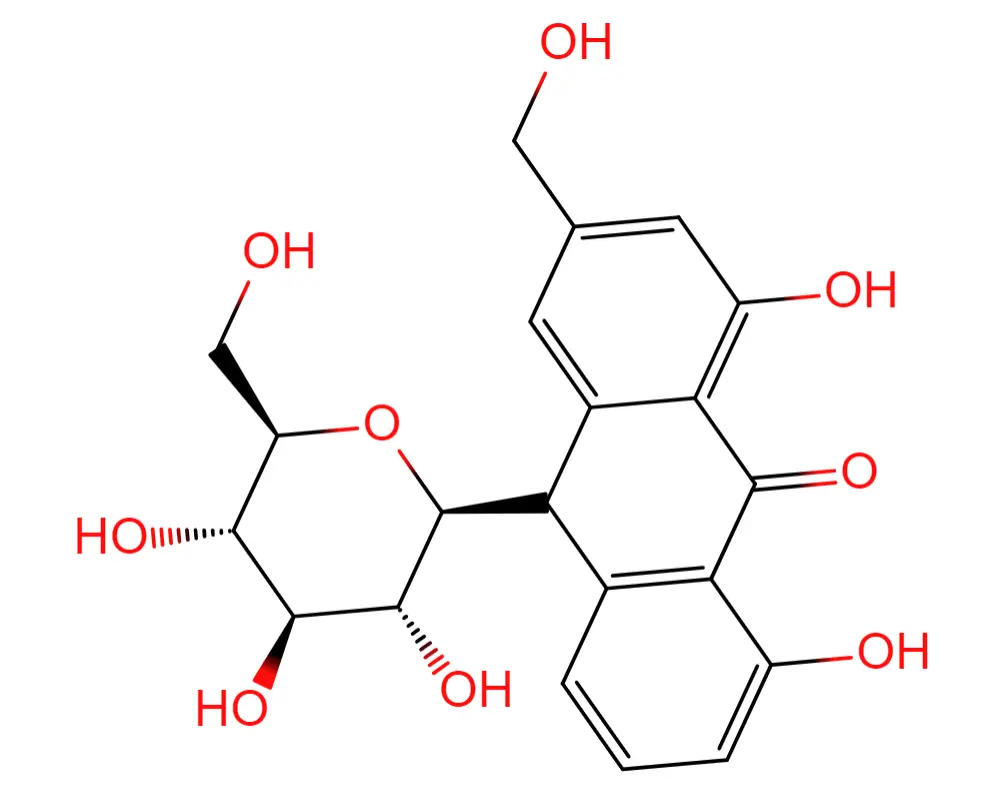
Barbaloin, also known as aloin, is a natural anthraquinone glycoside found primarily in the outer leaf of the Aloe vera plant. This bitter, yellow-brown compound is responsible for many of the medicinal properties associated with Aloe vera. Barbaloin acts as a protective mechanism for the plant, deterring animals from consuming it due to its bitter taste.
In Aloe vera, barbaloin serves several crucial functions:
- Antioxidant properties: Barbaloin acts as a powerful antioxidant, helping to neutralize harmful free radicals in the body.
- Anti-inflammatory effects: It helps reduce inflammation, both when applied topically and consumed orally.
- Laxative action: Barbaloin stimulates bowel movements, which is why Aloe vera is often used as a natural laxative.
- Antimicrobial activity: It exhibits antibacterial and antifungal properties, contributing to Aloe vera's ability to promote wound healing.
The concentration of barbaloin in Aloe vera can vary depending on factors such as the plant's age, growing conditions, and the specific part of the leaf being used. Typically, the highest concentrations are found in the outer leaf, which is often used to create Aloe vera extracts and supplements.
Exploring the Health Benefits of Barbaloin for Skin and Digestive Health
Barbaloin's unique properties make it a valuable compound for both skin care and digestive health. Let's examine some of the key benefits associated with this natural substance:
Skin Health Benefits
Barbaloin's impact on skin health is multifaceted:
- Wound healing: The antimicrobial and anti-inflammatory properties of barbaloin can help accelerate wound healing and reduce the risk of infection.
- Skin hydration: Barbaloin helps to lock in moisture, keeping skin hydrated and supple.
- Anti-aging effects: As an antioxidant, barbaloin may help protect the skin from free radical damage, potentially slowing the signs of aging.
- Acne treatment: The antibacterial properties of barbaloin make it a promising natural remedy for acne-prone skin.
- Soothing sunburns: Aloe vera's cooling and anti-inflammatory effects, partly attributed to barbaloin, can help soothe sunburned skin.
These skin benefits have led to the widespread use of Aloe vera in cosmetics, skincare products, and natural remedies for various skin conditions.
Digestive Health Benefits
Barbaloin's impact on digestive health is equally impressive:
- Laxative effects: Barbaloin stimulates bowel movements, making it useful for treating occasional constipation.
- Gut health: Some studies suggest that barbaloin may have prebiotic effects, promoting the growth of beneficial gut bacteria.
- Anti-inflammatory properties: Barbaloin's anti-inflammatory effects may help soothe digestive tract inflammation.
- Potential anti-ulcer activity: Research indicates that barbaloin might help protect against the formation of gastric ulcers.
It's important to note that while these digestive benefits are promising, more research is needed to fully understand the long-term effects of barbaloin on digestive health.
Other Potential Health Benefits
Beyond skin and digestive health, barbaloin shows promise in other areas:
- Antidiabetic potential: Some studies suggest that barbaloin may help regulate blood sugar levels, making it potentially beneficial for individuals with diabetes.
- Anticancer properties: Preliminary research indicates that barbaloin may have anticancer effects, though more studies are needed to confirm these findings.
- Immune system support: The antioxidant properties of barbaloin may help boost overall immune function.
As research continues, we may uncover even more potential health benefits of this remarkable compound.
How to Use Barbaloin: Dosage, Forms, and Precautions
While barbaloin offers numerous potential health benefits, it's crucial to use it safely and effectively. Here's what you need to know about incorporating barbaloin into your health regimen:
Forms of Barbaloin
Barbaloin is available in several forms:
- Aloe vera gel: Fresh Aloe vera gel contains small amounts of barbaloin, primarily from the outer leaf.
- Aloe vera juice: Commercial Aloe vera juices may contain varying amounts of barbaloin, depending on processing methods.
- Supplements: Barbaloin is available in capsule or tablet form, often as part of Aloe vera extracts.
- Topical products: Many skincare products contain Aloe vera extract, which may include barbaloin.
Dosage Considerations
The appropriate dosage of barbaloin can vary depending on the form and intended use:
- Topical use: When using Aloe vera gel or products containing barbaloin on the skin, follow the product instructions or apply as needed.
- Oral supplements: Dosages can range from 50-200 mg of Aloe vera extract per day, but it's crucial to follow the manufacturer's recommendations and consult with a healthcare professional.
- Aloe vera juice: Typically, 1-3 ounces of Aloe vera juice per day is considered safe for most adults.
It's important to note that the concentration of barbaloin can vary significantly between products, so always read labels carefully and start with lower doses to assess your tolerance.
Precautions and Potential Side Effects
While barbaloin is generally considered safe when used appropriately, there are some precautions to keep in mind:
- Laxative effects: High doses of barbaloin can have a strong laxative effect, potentially leading to diarrhea and electrolyte imbalances.
- Pregnancy and breastfeeding: Pregnant and breastfeeding women should avoid oral consumption of barbaloin due to potential risks.
- Drug interactions: Barbaloin may interact with certain medications, including blood thinners and diabetes medications. Always consult with a healthcare provider before using barbaloin supplements.
- Allergic reactions: Some individuals may be allergic to Aloe vera and its compounds, including barbaloin. Discontinue use if you experience any allergic symptoms.
- Long-term use: Extended use of high-dose barbaloin supplements may lead to dependency or other digestive issues. It's best to use these products for short periods under professional guidance.
Tips for Safe and Effective Use
To maximize the benefits of barbaloin while minimizing risks:
- Start with small amounts: Begin with lower doses to assess your tolerance, especially when using oral supplements.
- Choose quality products: Opt for reputable brands that provide clear information about their Aloe vera extracts and barbaloin content.
- Combine with a healthy lifestyle: Barbaloin works best as part of a balanced diet and healthy lifestyle.
- Monitor your body's response: Pay attention to how your body reacts to barbaloin and discontinue use if you experience any adverse effects.
- Consult professionals: Always speak with a healthcare provider before starting any new supplement regimen, especially if you have existing health conditions or are taking medications.
By following these guidelines, you can harness the potential benefits of barbaloin while minimizing any risks.
Conclusion
Barbaloin, the potent compound found in Aloe vera, offers a wide array of potential health benefits, particularly for skin and digestive health. From its wound-healing properties to its potential as a natural laxative, barbaloin showcases the remarkable healing power of nature. As research continues to unveil new insights into this compound, we may discover even more ways to leverage its benefits for our health and well-being.
However, it's crucial to approach the use of barbaloin with care and respect for its potency. By understanding its proper use, potential side effects, and necessary precautions, we can safely incorporate this natural wonder into our health routines. Whether you're seeking to improve your skin health, support your digestive system, or explore its other potential benefits, barbaloin stands as a testament to the enduring value of natural remedies in our modern world.
As we continue to unravel the mysteries of plant-based compounds like barbaloin, we're reminded of the importance of bridging traditional wisdom with modern scientific understanding. This holistic approach to health and wellness not only offers new avenues for natural healing but also deepens our appreciation for the complex and beneficial relationships between plants and human health.
To learn more about barbaloin and our range of high-quality plant extracts, please don't hesitate to reach out to us at mark@jiubaiyuanbiotech.com. Our team of experts is always ready to assist you in finding the perfect natural solutions for your health and wellness needs.
